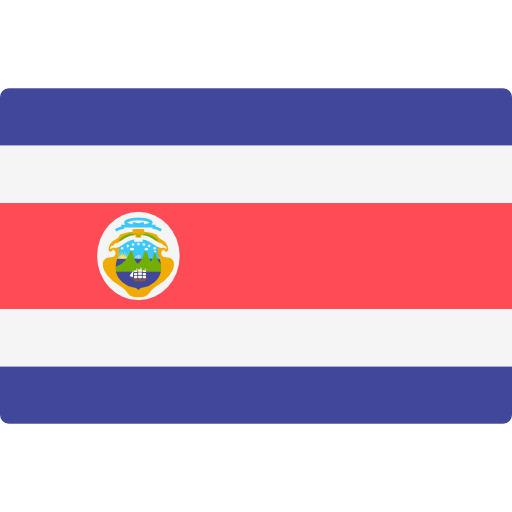Obtain a tax clearance certificate from the Municipality
Agency: Municipality of San José
The seller shall provide to the buyer a certificate attesting that the property is current with all the payments of all Municipal taxes and charges (including property tax, and charges for municipal services).
Time and cost: 1 day, CRC 1,320 (CRC 1320 (Tax clearance certificate))
Obtain a literal certification from the National Registry and a cadastral plan from the Cadastre online
Agency: Registro General Inmobiliario
According to Decree Nº 35488-J, all certificates obtained electronically have the same legal value as paper-based certificates.
The seller obtains a literal certification (printed sheet with the information of the property recorded at the Registry’s database) from the Registro General Inmobiliario, where it is issued the same day.
Information about the property can be obtained online. A notary public or any individual can access it with a designated password and get this information by simply logging into the National Registry’s website (www.rnpdigital.com), putting the property’s information and getting a print screen with the above indicated information (nature of property, location, area, cadastre number, owner, liens, mortgages, easements, limitations, boundaries, etc).
It is also possible to do searches in computers available at the Registro General Inmobiliario.
Time and cost: Less than one day (online), CRC 5,600 (CRC 2800 (stamps for the ownership certificate) + CRC 2800 (stamps for the certified plan))
A lawyer/notary drafts the sale agreement as a public deed
Agency: Lawyer/Notary
A lawyer/notary (in Costa Rica notary publics are lawyers) prepares the sale agreement in the form of a public deed based on the information obtained in procedure 1 and 2, provided by the parties. In accordance with the Notary Code, the lawyer/notary is legally obliged to study the property and in case the parties are corporations, study the Articles of Incorporation and verify that the person signing the transfer deed has the legal authority to represent the company.
Parties must provide photocopies of their ID (“cédula” for Costa Rican citizens or passport for foreigners) Corporations must provide a certificate of incorporation. Notary fees were amended by the Executive Decree No. 39078-JP of 25th of May of 2015 (which entered into force in August 2015).
Time and cost: 2 days, CRC 3,454,740.11
Fees according to the following scale:
- Property value Fees
- 0 – 11 million CRC 2%
- 11 – 16.5 million CRC 1.5%
- 16.5 – 33 million CRC 1.25%
- 33 million CRC and higher 1%
Pay transfer tax and the stamp duties at the Banco de Costa Rica
Agency: Banco de Costa Rica
Transfer tax and stamp duties must be paid at the Banco de Costa Rica, a state-owned bank that will transfer the money to the tax authorities—either online or in person. In order to pay online, one must have a bank account and internet access to the Bank’s secure web page. The notary certifies the affidavit that the payment was made and the registrant must check this info on the bank’s database. It has become a common practice for law firms and notaries to pay the transfer tax and stamp duties online.
The transfer tax and stamp duties are calculated on the basis of the highest stated purchase price and the property value appearing on the National Property Registry. Price is updated when the property is sold or mortgaged.
For a land transfer there are various types of stamps that must be paid. Payment is calculated as follows:
- National Property Register Stamp: 0.5% of the property value
- Municipal Stamp: 0.2% of property value
- Fiscal Stamp Tax: CRC 625
- Agrarian Stamp: 0.15% of property value
- Costa Rican Bar Association: 25,000 CRC for deeds between CRC 100 million -500 million (Executive Act No. 36562-JP)
- National Archive: CRC 20
Time and cost: Less than one day (online), CRC 7,724,221.77
- 1.5% of property price (transfer tax)
- 0.5% of property price (National Property Register Stamp)
- 0.2% of property price (Municipal Stamp)
- 0.15% of property price (Agrarian Stamp)
- 25,000 CRC (Costa Rican Bar Association fee)
- CRC 625 (Fiscal Stamp Tax)
- CRC 20 (National Archive fee)
File the public deed registration at the National Property Registry
Agency: Registro General Inmobiliario
The lawyer/notary files an affidavit of the public deed (known as a “testimonio”) before the National Property Registry (Registro General Inmobiliario), with proof of payment of the transfer tax and other applicable stamp taxes.
Once filed, the affidavit of the transfer deed is assigned for review by a Registrar of the Registro General Inmobiliario. If the document complies with all requirements, it is recorded and the buyer shall be the formal owner of the property thereafter. If the document contains problems it is returned to notary for correction and re-filing.
Time and cost: 7 days, Already paid in Procedure 4



